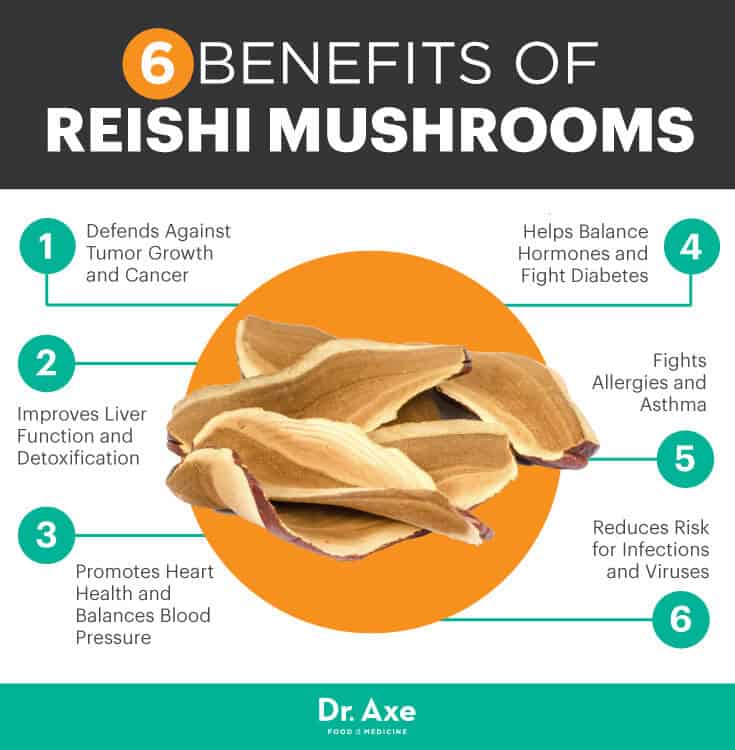Reishi mushrooms, scientifically known as Ganoderma lucidum, have been employed in traditional Eastern medicine for centuries, revered for their purported health benefits. This fungal marvel is not just an exotic addition to herbal supplements but also a topic of increasing interest among modern practitioners and researchers. The unique bioactive compounds in reishi mushrooms contribute to their medicinal properties, leading to a wealth of potential health benefits. Understanding these benefits can provide a comprehensive perspective on their role in holistic health and wellness.
The multifaceted health advantages of reishi mushrooms span various physiological domains. This article delves into the primary benefits associated with reishi, exploring their influence on immune function, cancer prevention, liver health, and mental well-being, among other areas.
Primarily regarded for their immune-modulating capabilities, reishi mushrooms engage in complex interactions with the immune system. The efficacy of these mushrooms is attributed to bioactive components, such as polysaccharides, triterpenoids, and peptidoglycans. These compounds have demonstrated the ability to bolster the immune response while simultaneously modulating inflammatory pathways.
Emerging evidence suggests that reishi mushrooms stimulate the proliferation of immune cells, such as lymphocytes and macrophages, enhancing the body’s ability to fend off infections and diseases. The presence of beta-glucans, a prominent polysaccharide found in reishi, is particularly noteworthy; these molecules are recognized for their role in activating immune cells and displaying anti-tumor properties. A study published in the journal Integrative Medicine Research highlights that subjects who incorporated reishi into their regimen experienced increased white blood cell counts and improved immune responses, thereby indicating enhanced overall immunity.
Another compelling area of research focuses on the potential of reishi mushrooms in cancer prevention and treatment. While it is crucial to note that reishi should not be considered a standalone cure for cancer, it may offer adjunctive benefits when used alongside conventional therapies. The triterpenoids present in reishi are of particular significance, as they have been shown to induce apoptosis in cancer cells, impede tumor growth, and inhibit angiogenesis—the process by which new blood vessels form to supply nutrients to tumors.
A systematic review in the journal Cancer Medicine assessed various studies concerning reishi mushrooms and their effects on cancer patients. The findings suggested that reishi supplementation correlated with reduced side effects of chemotherapy, increased quality of life, and improved immune function. Furthermore, laboratory studies have indicated that reishi extracts can exhibit cytotoxic effects on diverse cancer cell lines, including breast, prostate, and liver cancers. Although further clinical trials are warranted, the preliminary results indicate a promising avenue for integrating reishi into cancer care.
Liver health represents another area significantly benefited by reishi mushrooms. The liver is pivotal in detoxification, metabolism, and overall homeostasis. Chronic liver diseases, including hepatitis and fatty liver disease, pose substantial health risks; however, reishi is posited to ameliorate liver function through its myriad of protective qualities. Triterpenes, for example, have been documented to reduce liver fibrosis, a condition characterized by excessive accumulation of connective tissue that often precedes chronic liver failure.
Moreover, research has demonstrated that reishi extracts can enhance liver enzymes, indicating improved liver function and detoxification capacity. A study in the Journal of Ethnopharmacology found that participants consuming reishi exhibited elevations in blood antioxidant status, which subsequently reduced oxidative stress—a major contributor to liver damage. The hepatoprotective effects of reishi mushrooms affirm their potential as a natural supplement for individuals concerned about liver health.
The mental health benefits of reishi mushrooms offer another avenue for exploration. The adaptogenic qualities of reishi impart a calming effect that may alleviate stress and anxiety. Historical use in traditional medicine has laid the groundwork for contemporary research into how reishi can promote a balanced neurochemical environment and subsequently augment mental well-being.
Studies suggest that reishi consumption may mitigate the symptoms of anxiety and depression. The active constituents in reishi mushrooms, particularly triterpenoids and polysaccharides, are envisaged to modulate stress hormones, such as cortisol, thereby promoting an overall sense of calm and enhancing mood. The neuroprotective effects of reishi also raise the possibility of improved cognitive function and reduced neurodegenerative diseases, which require further investigation to fully comprehend their implications.
Beyond these major areas, reishi mushrooms have been linked to numerous additional health benefits. Cardiovascular health is one such area, where studies indicate that reishi can lower blood pressure and cholesterol levels, potentially reducing the risk of heart disease. The antifungal, antibacterial, and antiviral properties of reishi mushrooms further illustrate their broad spectrum of health benefits. Consuming reishi may aid in combatting various infections and supporting a well-rounded immune response.
Incorporating reishi mushrooms into the diet can take several forms. They can be consumed dried, brewed as tea, or utilized as an extract. For those seeking convenience, many supplements are available that encapsulate powdered reishi or provide concentrated doses of its bioactive compounds. The most appropriate form often depends on individual preferences and health objectives.
While consuming reishi mushrooms is deemed safe for the majority, certain precautions must be taken. Individuals who are pregnant, nursing, or taking anticoagulant medications should consult a healthcare professional prior to initiating reishi supplementation. Additionally, potential side effects, such as gastrointestinal discomfort or allergic reactions, may occur in some individuals, necessitating mindfulness regarding dosage and consumption patterns.
In summation, reishi mushrooms present a fascinating and multifarious array of health benefits that extend well beyond their ancient roots in traditional medicine. With their immune-boosting properties, potential cancer-fighting abilities, support for liver health, and contributions to mental wellness, these mushrooms are a compelling subject of scientific inquiry. The growing body of research lends credence to reishi’s position as a holistic health ally, deserving of further exploration and appreciation in the realms of nutrition and integrative medicine. The continuing investigation into the remarkable contributions of reishi mushrooms will surely illuminate their potential and further establish their place in health-promoting paradigms.
